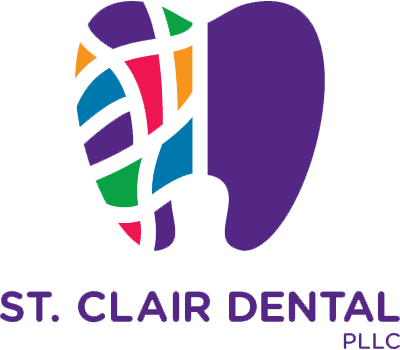Good nutrition is fundamental to maintaining overall health, and its role in dental health is equally critical. Dr. Maureen Karl at St. Clair Dental, Pllc in Granbury, TX, emphasizes the importance of a balanced diet in supporting oral health. This blog explores the various ways in which the foods you eat can either promote oral health or contribute to dental problems.
The Connection Between Diet and Oral Health
The mouth is the first point of contact with the nutrients we consume, making diet an essential factor in oral health. Certain foods can lead to the development of cavities and gum disease, while others have protective properties that support healthy teeth and gums.
- High-Sugar Foods and Beverages: Foods and drinks high in sugar are perhaps the most well-known culprits in dental health issues. Sugar interacts with bacteria in the oral cavity to produce acids that wear away at tooth enamel, leading to cavities.
- Acidic Foods and Drinks: Besides sugar, acidic foods and beverages, including soft drinks, citrus fruits, and wine, can erode tooth enamel in a process known as dental erosion.
- Hard Foods: Chewing on hard foods like ice or hard candies can lead to tooth damage or even breakage.
Conversely, there are foods that naturally protect the teeth and gums:
- Dairy Products: Milk, cheese, and yogurt are high in calcium and phosphate, which can help redeposit minerals into tooth enamel, repairing and strengthening it.
- Fibrous Vegetables and Fruits: Foods like apples, carrots, and celery help clean teeth by stimulating saliva production, which neutralizes the acids and aids in remineralization.
- Green and Black Teas: These contain polyphenols that interact with plaque bacteria. These substances either kill or suppress bacteria, preventing them from growing or producing tooth-attacking acid.
Nutritional Strategies for Optimal Oral Health
To maximize oral health through diet, Dr. Karl suggests incorporating a variety of nutrient-rich foods:
- Calcium-Rich Foods: Including dairy products, leafy greens, and almonds, to help strengthen teeth and bones.
- Phosphorus: Found in eggs, fish, lean meat, dairy, nuts, and beans, it’s critical for maintaining enamel health.
- Vitamin C: Important for gum health, found in citrus fruits, tomatoes, peppers, broccoli, potatoes, and spinach.
- Water: Drinking plenty of water, especially after meals, can help wash away sugars and acids, and dilute the substances in the mouth that cause decay.
Advanced Dental Care and Nutritional Counseling
At St. Clair Dental, Pllc, we believe in a holistic approach to dental care that includes dietary advice tailored to oral health:
- Dental Implants and Crowns and Bridges: For those with missing teeth or significant dental damage, these restorations can help restore function and prevent dietary restrictions that might compromise nutrition.
- Teeth Whitening and Veneers: These cosmetic options encourage patients to maintain their dental health to preserve the esthetics achieved through these treatments.
Protecting Your Smile Through Diet
A diet that supports dental health is a strong line of defense against tooth decay and gum disease. Dr. Maureen Karl and the team at St. Clair Dental, Pllc are dedicated to guiding their patients in Granbury, TX, through the nutritional choices that benefit both their oral and overall health.
Nourishing Your Smile: A Culinary Approach to Dental Health
In summary, the relationship between diet and oral health is intricate and influential. By making mindful choices about the foods you consume, you can significantly impact the health of your teeth and gums. Dr. Maureen Karl is committed to providing the resources and knowledge needed to integrate nutritional strategies into your oral health regimen, ensuring that your smile remains vibrant and healthy.
Sources:
- American Dental Association: www.ada.org
- Journal of Dental Research
- Academy of Nutrition and Dietetics

